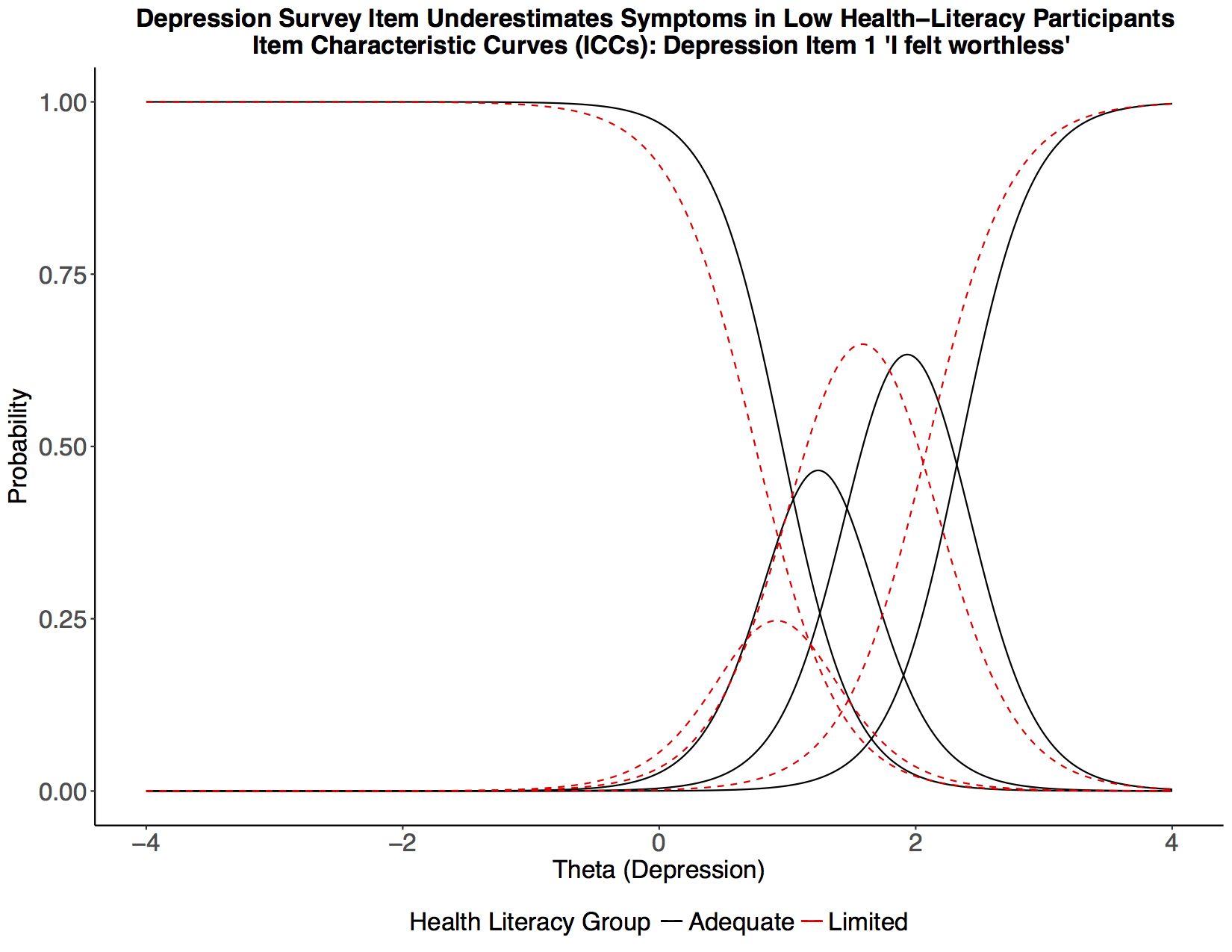Psychometric analyses can help illuminate how people approach clinical tests. To understand how health literacy (i.e., literacy for health information) might lead to biased assessment of emotional distress, we examined the psychometric properties of anxiety and depression questionnaires, using differential item functioning (DIF) analysis. Items were flagged for DIF if item response theory parameters were different across health literacy groups. All items flagged for DIF had lower item-slopes for people with limited health literacy. This suggests that these items were less precise assessments. DIF analyses can identify items that are potentially problematic for people with limited health literacy (e.g., the item is too confusing). Design of questionnaires should incorporate psychometric methods (e.g., DIF analysis) to identify and reduce measurement bias.
Description
Item characteristic curves (ICCs) show differential item functioning (DIF) for the depression item “I felt worthless.” Individuals with limited health literacy responded differently to this question about depression, showing that their level of depression may be underestimated.
